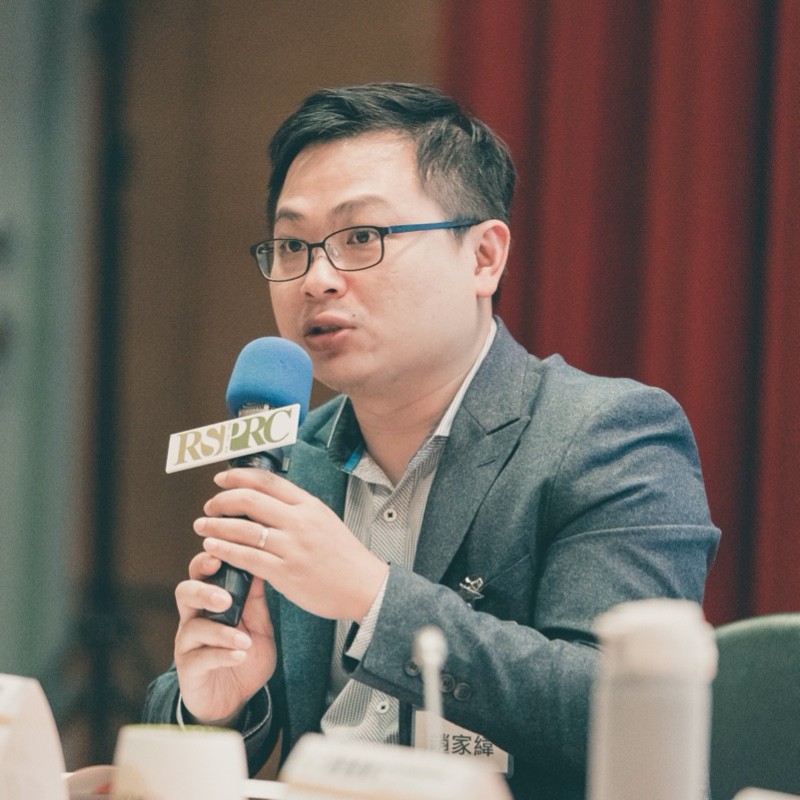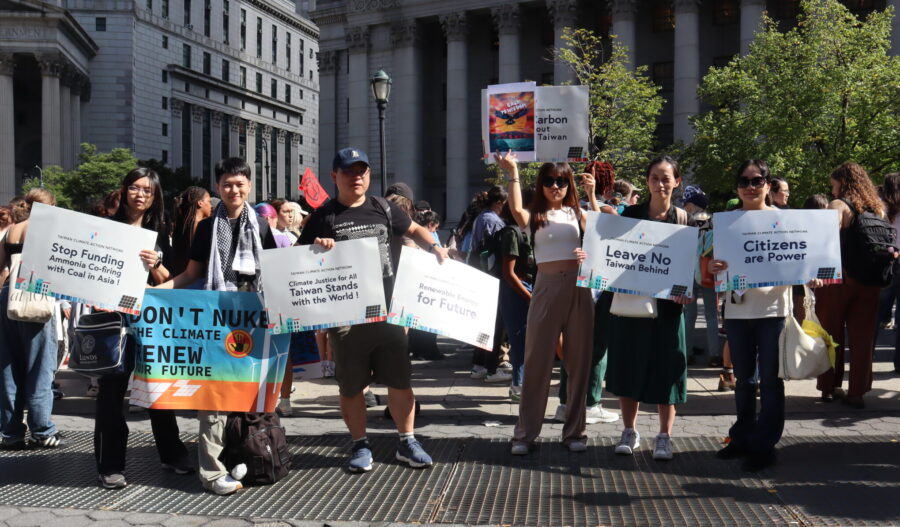DUBAI —
Taiwan has been blocked from participating in the COP28 climate summit, but a representative it sent to Dubai spoke with VOA on the sidelines of the talks in an exclusive interview. Environment Minister Shieu Fuh-Sheng tells VOA that Taiwan is willing to contribute to a new climate damage fund approved at the United Nations Climate Change Conference in Dubai aimed at compensating vulnerable countries in the Global South for damages they’ve experienced.
Taiwan may be small with a population of 23.9 million, but its per capita emissions are among the highest in the world, surpassing giant emitters — such as China, Japan and the European Union. Fossil fuels still account for more than 80% of Taiwan’s energy mix, and most of it is imported.
With the United Arab Emirates — a developing country under the UNFCCC (United Nations Framework Convention on Climate Change) categorization — pledging $100 million to the loss and damage fund, developed economies are under pressure to follow suit. Taiwan, with a GDP like Sweden’s, feels responsible, Shieu said.
“We are going to fulfill our [climate] responsibilities. If we are included in the conversations, I believe Taiwan is willing to make its contributions to [the loss and damage fund],” Shieu told VOA News.
He adds that Taiwan already provides climate finance, including $1 million to one of its few remaining diplomatic allies, the Marshall Islands, for climate adaptation. It also donated $500,000 to Hawaii for relief efforts after the devastating wildfires in Maui.
“So Taiwan has been making its [climate] contributions through such a channel, and if we can join the official negotiations, we can make a bigger contribution,” Shieu said.
The self-ruled island has been excluded from all COP28 climate negotiations, as it is not recognized by the UNFCCC as a member state.
Many government officials, including Shieu, have been barred from entering the venue’s Blue Zone, where all climate negotiations including the loss and damage fund, mitigation, adaptation and fossil fuel phase-out are taking place.
During the COP28 climate summit, 11 of Taiwan’s diplomatic allies, including Belize and the Marshall Islands, pushed to include Taiwan in the U.N. climate framework. China lodged a protest Saturday calling the move “unacceptable” and citing its claims that the democratically ruled island is part of its territory.
Climate justice
Taiwan’s Shieu said that climate change and sovereignty should be separate issues.
“It’s such a shame [that we aren’t invited to the negotiations] because climate change isn’t an issue that can be solved single-handedly. It affects everyone in the planet, and it relies on everyone to reduce emissions. … It’s also a loss for the international community in terms of mitigation and adaptation.”
Excluding certain territories like Taiwan and Puerto Rico is in the way of achieving climate justice, according to Isatis Cintron, climate scientist and director of Climate Trace.
“We cannot talk about full climate justice if we are excluding people from the [negotiation] table,” Cintron told VOA News.
Such exclusion also prevents Taiwan from officially fulfilling its climate responsibilities, according to Chia-Wei Chao, research director of TCAN think tank from Taiwan.
“Taiwan is one of the biggest emitters [per capita] and it bears the related climate responsibilities,” Chao told VOA News. Chao added that Taiwan should also expand its current climate finance to its allies. “Taiwan is definitely in the donor position in climate finance.”
Under the “Taiwan Can Help” campaign, Shieu said the island can help in technology for adaptation including early warning systems and disaster prevention, among others.
Sidelined
Climate loss and damage is included in the negotiation text of discussion over the phase out or phase down of fossil fuels, rendering mitigation at the heart of loss and damage. Taiwan isn’t one of the signatories in the Paris Agreement that seeks to limit global temperature rises to 1.5 degrees Celsius above pre-industrial levels.
The island signed its own green plan, named Climate Change Response Act, into law earlier this year, promising to turn into net-zero in 2050. However, not being recognized by the U.N. means the monitoring process of Taiwan turning into net zero can be complicated, Chao said.
“Does Taiwan’s NDC [national determined contributions — countries’ green pledges at COP] suit what’s needed to achieve the Paris Agreement? How do we make sure Taiwan’s execution of its green goals is proportional to its climate responsibilities? We aren’t able to make formal consultations because Taiwan is not included in the negotiation,” he explained.
The island’s famed semiconductor-making industry — the world’s largest — used less than 10% of renewable energy in 2021 and is projected to double its energy consumption by 2030, a report from Greenpeace revealed earlier this year. At the same time though, TSMC, the biggest Taiwanese semiconductor producer, moved up its target to switch to 100% renewable energy from 2050 to 2040.
“Semiconductor production is a very important part of Taiwan’s energy transition … but Taiwan cannot join in the conversations to set rules for greening industries, it can only comply in a passive manner,” said Chao.
This article was prepared with the support of a COP28 Climate Justice Fellowship by Climate Tracker.
Original source: Link


